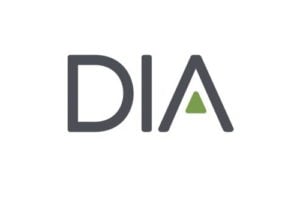Writing in the July issue of DIA’s Global Forum magazine Pfizer R&D Japan’s Atsushi Kitamura examines how both pharmaceutical companies and patients in Japan can help increase patient engagement in the clinical trial process.
Patient engagement in clinical trials in Japan has been progressing steadily in the last few years. Pharmaceutical companies and patients who have not realized its value until recently have had more opportunities to hold discussions on clinical trials, with DIA contributing to and promoting such discussions. Currently, many pharmaceutical companies are trying to incorporate patient insight into their protocols and informed consent forms (ICFs). On the other hand, there remain a number of challenges to overcome in promoting these activities.
- Environmental changes brought about by the COVID-19 pandemic have served as an opportunity for pharmaceutical companies and patients to communicate with each other.
- A considerable number of pharmaceutical companies that have implemented patient engagement activities have examined ways of inviting the most appropriate patients to obtain input.
- Obtaining patient insight is key in implementing decentralized clinical trials (DCTs) as a near-term solution to the COVID-19 pandemic and as a longer-term solution to make it easier for patients to participate in clinical trials. On the other hand, the process of utilizing patient insight from individual countries in global trials has not been optimized.
- Medical institutions involved in clinical trials in Japan often use their own informed consent form (ICF) template. In this regard, it is necessary to explore ideas on how to implement patient-friendly ICFs at all clinical study sites.
- To overcome these obstacles, cooperation of not only pharmaceutical companies and patient groups but also government and academia/medical institutions is indispensable.
Current Communication between Pharmaceutical Companies and Patients in Japan
Previously in Japan, most, if not all, pharmaceutical companies were hesitant to communicate with patients because they assumed interactions between company and patient would be regarded as promotional. In 2016, the Japan Pharmaceutical Manufacturers Association (JPMA) started a Drug Development with Patient Voices – Patient Centricity by Pharmaceutical Companies taskforce. The Japan Agency for Medical Research and Development (AMED) published their Patient and Public Involvement (PPI) Guidebook in 2019, which provided reference on communication methods. In addition, the spread of COVID-19 has promoted online communication, increasing opportunities for rural/remote or mobility-challenged patients to participate in these activities. As a result, opportunities for communication between pharmaceutical companies and patients have increased.
Progress of Activities to Obtain Patient Insights in Japan
To begin, several companies held meetings to create a “patient journey map” with the aim of obtaining patient insight on the target indication. The patient journey map presented at the DIA Japan Annual Meeting 2019 is a method for visualizing a patient’s physical and psychological condition to understand the treatment and issues related to a specific disease and to get a better grasp of the patient’s condition.
Then patient advisory board meetings began, mainly conducted by global companies with the objective to obtain patient insight on the clinical trial protocol and/or ICF (a presentation topic at the 41st Japanese Society of Clinical Pharmacology and Therapeutics [JSCPT] Symposium). This quickly spread to domestic companies as well. On the other hand, only a few educational programs on clinical trials for patients were available in Japan at this time. As a result, each company had a challenge in identifying the most appropriate patients to obtain their insight. Even now, training to nurture patient experts (e.g., EUPATI toolbox), selection of patients, and how to request patients to participate remain challenges to obtaining patient insight in Japan.



